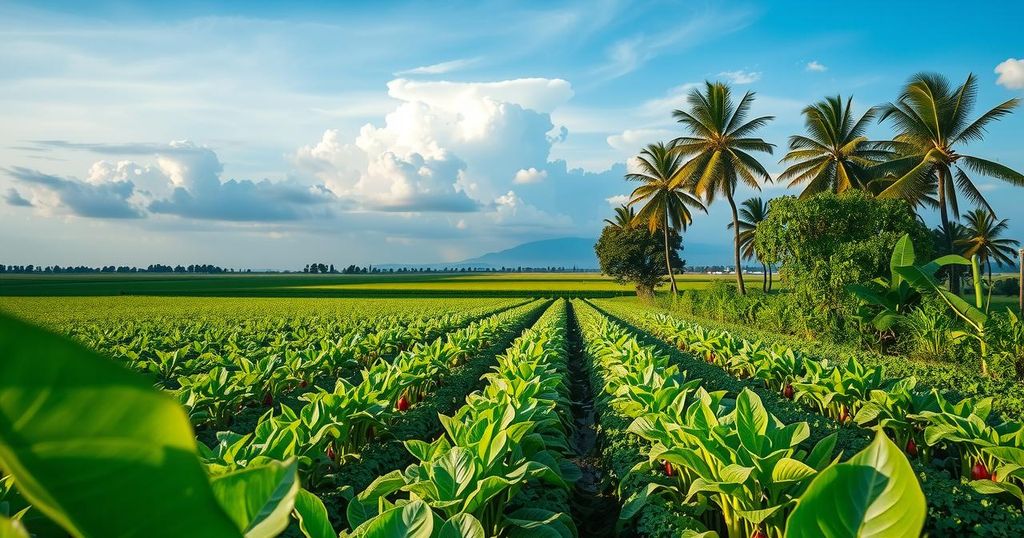Tropical crop prices have significantly risen, benefiting traders, while smallholder farmers face immense challenges due to climate change effects on production. Major crops like coffee, rubber, and cocoa are seeing increased prices, but adverse weather conditions threaten their cultivation. The high concentration of production in few countries exacerbates vulnerability to climatic impacts, hindering smallholders from reaping the benefits.
Recent surges in prices for tropical crops—including coffee, rubber, and cocoa—highlight a dual narrative: while commodity traders are thriving, smallholder farmers are largely missing out. Tropical crops are experiencing significant price increases, with coffee prices more than doubling, and rubber, cocoa, and palm oil rising by over 20% since August. However, the gains are juxtaposed with severe climate issues that are affecting crop production.
Tropical crops, sensitive to climate fluctuations, are facing increased challenges due to weather-related incidents exacerbated by global warming. The profitability seen in commodity markets stands in stark contrast to the hardships faced by farmers affected by droughts, floods, and overall climatic volatility. This disparity denotes a looming financial crisis as climate change unfolds.
The concentration of crop production in a few countries—that is, Brazil, Indonesia, Ivory Coast, Malaysia, Thailand, and Vietnam—leaves global markets susceptible to the effects of regional weather disruptions. For instance, Brazil is grappling with destructive droughts, affecting coffee production and power supply while causing significant ecological damage. Concurrently, adverse weather in West Africa and Southeast Asia is hampering harvests, illustrating the interconnectedness of global agricultural outputs.
As climate change causes regional weather patterns to become more interlinked, the vulnerability of tropical crops becomes increasingly evident. Research indicates that even slight temperature increases can lead to detrimental effects such as diminished photosynthesis and pest proliferation. One study projects that by 2070, 41 of 190 tropical species reviewed will face severe temperature challenges that could hinder seed growth, underscoring the existential threat posed to these vital crops.
The long-term nature of tree plantations exacerbates farmers’ challenges, as they cannot quickly adjust planting strategies in response to climatic changes, unlike annual crops. Despite rising commodity prices, smallholder farmers are left at a disadvantage, often lacking the resources to invest in climate adaptation strategies that could mitigate these effects, perpetuating their cycle of poverty.
Most tropical crop producers are smallholders, primarily cultivating limited land for subsistence. While higher commodity prices might typically encourage investment in better agricultural practices, structural inefficiencies prevent these farmers from benefiting fully from these price hikes, with the majority of profits accruing to processors and major traders instead. This systemic issue suggests that real relief for these farmers may remain elusive, rendering the current price gains hollow in terms of future sustainability.
In summary, despite rising prices for tropical crops benefiting commodity traders, smallholder farmers are struggling against the adverse impacts of climate change. High concentrations of production in limited geographic regions make them particularly vulnerable to weather anomalies, which are further amplified by global warming. Consequently, without access to investments for adaptation, these farmers are unlikely to see the benefits of price increases, leaving them trapped in a cycle of poverty amidst rising commodity values.
Original Source: www.biznews.com






